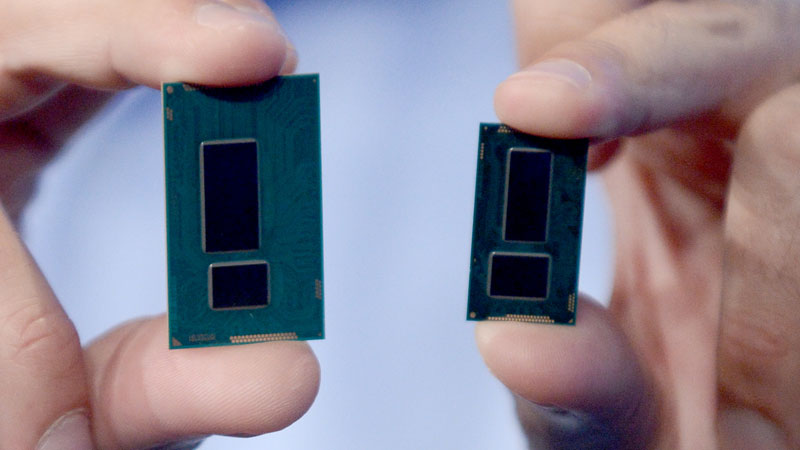At the second day of IDF, here in San Francisco, Intel officially announced the arrival of its Bay Trail platform for low-power tablets and laptops.
Intel’s Dr. Hermann Eul took to stage to emphasise the importance of mobile technology and connectivity in the modern age. Following up from yesterday’s announcement of the ultramobile Quark chips, designed to be put in nearly everything, he drove home the message that Intel is taking mobile very, very seriously.
Bay Trail will be the platform for the chipmaker’s assault on the mobile world, and it’s already mobilised its partners to create some fantastic kit. HP, Dell, Acer, Asus, and Sony had their wares shown on stage, all running on the Bay Trail-based Atom processors using the Silvermont architecture. The most popular form factors shown off were 2-in-1 devices. According to the company’s research, consumers want these tablet-like devices without sacrificing conventional PC functionality, making 2-in-1s the ideal everything machine.
These dual-purpose devices can be both tablets and laptops, and software developers are adding logic to their apps that transform user interfaces accordingly. For instance, when used in laptop mode a painting app use optimised to be used as windowed software, but in tablet mode the same app transforms its interface to be better used with a stylus or finger. With Bay Trail innards, there won’t even be a trade-off between battery life and performance: Intel wants users to have the most of both.
But it’s not just Windows devices that will be able to use Bay Trail chips. Intel and Google have worked together quite closely, since it was first announced that Android would support Intel chips two years ago, and with Bay Trail Intel looks to have a performance edge. Along with having powerful, 64-bit chips for Android tablets, Intel’s also making available a number of developer tools to help software creators port their apps to run on its chips.
As an aside, Google’s other operating system – the notebook-oriented Chrome OS – will also get Intel power. A handful of manufacturers showed off Haswell-based Chromebooks.
The US market will see Bay Trail-powered devices go on sale this holiday season for between $199 (around R2 000) and $350 (around R3 500). While pricing is dependent on the hardware and models offered by each vendor, we sincerely hope that Sony, HP, Acer, and Asus bring their ultra-affordable 2-in-1s to the South African market at equally-aggressive price points.

